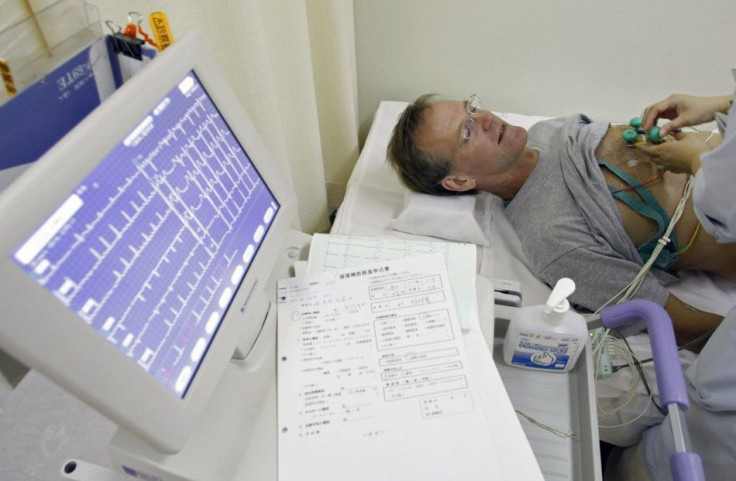Sick Americans Extremely Concerned About Cost, Quality of Health Care: Poll

When it comes to the debate surrounding the U.S. health-care system, there is one demographic that has particular insight into the cost and quality of medical care: sick Americans.
As the price of health care grows faster than the rate of inflation, three-quarters of Americans who have been sick within the last year -- defined as anyone who had a serious illness, medical condition, injury or disability -- believe there is a serious problem with the quality of the nation’s health-care system, with the exorbitant cost of care primarily cited as the main problem, according to a joint poll from the Harvard School of Public Health, the Robert Wood Johnson Foundation and National Public Radio.
While it may not be surprising that individuals grappling with their own health issues are concerned about costs and quality, the proportion of respondents who shared those concerns was notable: three of four people who were sick said cost is a very serious problem, while about half said quality is a very serious problem.
Even relatively healthy Americans may be despondent about the state of the nation’s health-care system. More than 80 percent of the general public polled said the rising costs of care are either a very or somewhat serious problem for the country, with three-quarters of those attributing the costs to excessive prices charged by insurance companies, drug companies and hospitals.
Still, the responses from the recently ill are particularly representative of the fear and financial hardship that can often result from an unexpected illness. More than 60 percent said the cost of their medical care has resulted in either “very” or “somewhat” serious problems for their family’s finances, while at least 17 percent said there have been times when they have been unable to receive treatment due to excessive health-care costs.
The barriers to care faced by sick people who are uninsured were also highlighted. Forty percent of those who have lacked health insurance within the past 12 months said there was a time when they needed medical care but could not get it, compared to only 10 percent with insurance who said they faced the same problem.
“These findings confirm how thinly individuals and families have been stretched. Having access to high-quality, affordable, comprehensive health coverage is crucial, but we know that even with insurance, rising health-care costs leave many Americans with the burden of higher out-of-pocket spending, said Risa Lavizzo-Mourey, the president and CEO of the Robert Johnson Wood Foundation, in a statement.
Health-care costs reportedly jumped by 3.3 percent between 2009 and 2010, according to a recent study from the Health Care Cost Institute, rising at double the rate of inflation, even though patients actually consumed less medical care overall.
The nonpartisan research group, which is actually funded by insurers, found medical costs grew the fastest for children under 18, while prices for outpatient visits and inpatient admissions also rose at a higher rate than other services.
On top of that, workers’ co-payments and deductibles -- paid on top of their share of premium deductibles -- increased by 7.1 percent to an average of $689 per person, according to the report.
But, even though health care is expensive, sick patients still pointed out a host of problems with the quality of care they received during their treatments. For instance, findings show that:
- One in eight of the sick respondents surveyed believed they were given the wrong diagnosis, treatment or test;
- Twenty-five percent said a doctor, nurse or health professional did not provide all the information about their treatment or prescriptions;
- Thirty percent of respondents who had been hospitalized said there was poor communication among the health-care professionals involved in their case;
- Nearly 75 percent said they wanted their physician to spend time discussing other broader issues that could affect their long-term health, as opposed to solely discussing their specific medical problem.
© Copyright IBTimes 2024. All rights reserved.





















